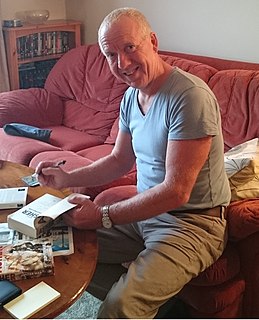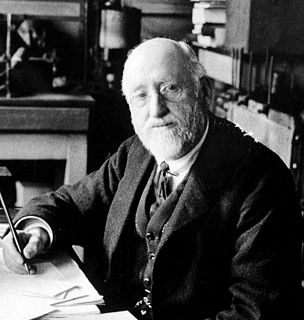A Quote by Daniel Kahneman
We are often confident even when we are wrong, and an objective observer is more likely to detect our errors than we are.
Related Quotes
It is often sadly remarked that the bad economists present their errors to the public better than the good economists present their truths. It is often complained that demagogues can be more plausible in putting forward economic nonsense from the platform than the honest men who try to show what is wrong with it.
When you reach the editing stage, it is often the case that you can get too involved with the story to detect errors. You can see words in your head that aren't actually there on the page, sentences blur together and errors escape you, and you follow plot threads and see only the images in your skull.
I shall often go wrong through defect of judgment. When right, I shall often be thought wrong by those whose positions will not command a view of the whole ground. I ask your indulgence for my own errors, which will never be intentional, and your support against the errors of others, who may condemn what they would not if seen in all its parts.
A curiously interested observer sees a great deal, a scientifically interested observer is worthy of all honor, and anxiously interested observer sees what others do not see, but a crazy observer sees perhaps the most, his observation is more intense and more persistent, just as the senses of certain animals are sharper than those of man.
The beam in our own eye is harder to detect, although - or more accurately because - to detect it, and remove it, is vastly more important on elementary moral grounds, and commonly more important in terms of direct human consequences as well. Intellectuals have historically played a critical function in performing these tasks, and [Ivan] Illich is right to observe that claims to scientific expertise and special knowledge are often used as a device.
But, as Bacon has well pointed out, truth is more likely to come out of error, if this is clear and definite, than out of confusion, and my experience teaches me that it is better to hold a well-understood and intelligible opinion, even if it should turn out to be wrong, than to be content with a muddle-headed mixture of conflicting views, sometimes miscalled impartiality, and often no better than no opinion at all.
Women are far more likely to follow orders to evacuate, especially women with children. At the same time, women were much more likely to die during the South Asian tsunami. In some villages it was 3 to 1. And that was party because of the average strength it takes to hold onto something. Also it was cultural; women were less likely to know how to swim, as were children. So much of this is based on how we develop our own survival skills before something goes wrong: Even if nothing goes wrong, it might be good to know how to swim.
In my experience, professionals who are best in any field approach their work with humility. They know that their work is more than just a job. It's an exploration of life. Even on days when they feel most confident, things can go wrong. Sometimes even the good things that happen are a mystery - a surprise. There are always elements outside our control. That's humbling - or should be.
Although this may seem a paradox, all exact science is dominated by the idea of approximation. When a man tells you that he knows the exact truth about anything, you are safe in inferring that he is an inexact man. Every careful measurement in science is always given with the probable error ... every observer admits that he is likely wrong, and knows about how much wrong he is likely to be.





































